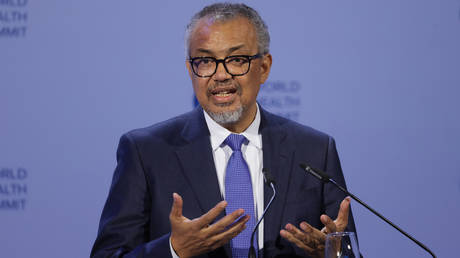I have learned to love Portuguese wine which often costs about $2 a glass.
Courtesy of Jeana Whitaker
I’d been teaching in the US for over 20 years but the culture had changed and I was miserable.I was working 12-hour work days plus on weekends and was burnt out and fed up.I sold everything, moved to Portugal, started my own business, and am living my best life.
Living in Lagos, Portugal, feels like a dream come true.
The slow pace of living, warmth of the locals, and affordability make my life feel balanced and serene.
Every day, I’m reminded of the little joys, such as walking the dog, strolling along the cobblestone streets, and shopping at the little farmer’s market.
It’s the kind of place where time seems to stretch, allowing for quiet moments of reflection and connection with nature.
This is what I would dream of on stressful, busy days as a teacher in the US. I thought it was just a fantasy that you only see in the movies, but three years later, I can honestly say that I have found my oasis.
I left the US in 2021 because I was fed up
I had taught high school English and Theatre in Arizona for over 20 years. I loved teaching but had become disheartened by the challenges within the public school system in recent years.
Communicating with parents became increasingly difficult, and I often felt treated more like their personal employee than a partner dedicated to helping their child succeed.
One parent threatened to sue me unless his child received the role in the play she wanted. Another parent removed her child from a final dress rehearsal to attend a church party.
This was vastly different from the early years of my career when parents willingly volunteered to help.
Every time there were budget cuts, it was the arts that would suffer, as well as my work-life balance. I was consistently asked to do more with less.
In addition to teaching classes eight hours a day, followed by three hours of rehearsal, I would go home and spend another two to three hours grading essays and planning for the next day.
Then, my weekends were spent building sets, sewing costumes, and running fundraisers to cover all the expenses.
I lived in a nice, middle-class area with manicured lawns and a pool in the back, but after Gabby Giffords and 20 other people were gunned down at a supermarket down the street, I never truly felt safe again.
Mass shooter drills had become the norm at school, and I often worried about how I could keep my students secure in an auditorium with glass doors that couldn’t be locked from the inside due to fire codes.
As I would relax in my backyard at night, envisioning a life in Europe, the echoes of gunfire would frequently disrupt my peaceful thoughts. Arizona has open-carry laws, and it wasn’t uncommon for people to shoot a gun into the air for no particular reason. It was just part of the landscape.
So, at 54, I decided it was time to take the leap, stop dreaming, and change the scenery. I sold everything I owned, changed careers, and moved to Europe, leaving everything behind except my sweet dog.
My expenses are much lower than in the US
I would sit on my patio in Arizona at night dreaming of a place like this. Now, it’s my home.
Courtesy of Jeana Whitaker
I would sit on my patio in Arizona in the evening and dream of a place like this. Now, it’s my home.
My expenses are about one-third of what I was paying in Arizona, which has dramatically improved my work-life balance.
I now set my own schedule and work only 30 hours a week. My income is lower, but so are my expenses, which allows me to enjoy more time on the beach.
My office now comes with the sound of rolling waves and soft breezes. I pay $850 a month — less than half of what my mortgage was in the US — for a cozy apartment with a sea view, and that includes cable and utilities.
In the past, my cable bill alone was over $150 each month, and electricity and water could total up to $400 during the hot summer months. Now, all of these expenses are covered by the rent.
My cellphone bill is $15.00 a month for unlimited talk and text.
I pay $150 a month for health insurance, with co-pays under $25, and my monthly prescription costs for the exact same medications have dropped from over $300 in the US to under $20 here.
Add on groceries and entertainment, and my total monthly budget comes out to about $2,500.
With my living expenses in check, I’m free from financial stress and able to focus on meaningful work.
I’m now a freelance writer and entrepreneur, building a rewarding business dedicated to teaching English to adults seeking to excel in global business environments.
When I’m not working, I enjoy taking my dog for beach walks and dining at local cafés.
A meal typically costs $15 to $20 and includes an appetizer, salad, entrée, and a glass of wine. It is finished with coffee and a pastel de nata, a custard tart the Portuguese are famous for.
I’ve also discovered a new-found love of Portuguese wine. Each region has its own special flavors, from rich Port wine up north to the refreshing green wine of the Douro River valley, and typically costs only $2 a glass.
The universal healthcare means I don’t stress about enormous medical bills
Luckily, I haven’t had a serious medical issue, but I’ve still greatly benefited from Portugal’s healthcare system.
After 20 years of misdiagnosed thumb pain in the US, I finally found a doctor in Portugal who ordered an MRI and ultrasound, correctly diagnosing it as a Glomus tumor.
A 30-minute outpatient surgery relieved the pain, and the entire process — consultations, tests, and surgery — cost me under $600 with insurance.
My life in Portugal has come with some challenges
The laid-back lifestyle here means that sometimes things move a bit slower — like the year-long wait for my Portuguese driver’s license to arrive or the additional six months it took to renew my residency card.
Learning the language has also been challenging, though many locals speak English, which makes things much easier. However, taking Portuguese classes has also given me greater empathy for my business English clients and ultimately made me a better teacher.
Navigating traffic circles was a bit daunting at first, but now I prefer it to sitting at stoplights. It reduces congestion and idling, which saves me money on fuel.
Despite these little bumps, the positives overwhelmingly outweigh the negatives.
Looking back on my journey, I am incredibly thankful for my decision to take this leap of faith and move years ago.
In Portugal, I feel safe and welcomed and I’m free from financial concerns. This environment allows me to truly live my best life, appreciate the little things, and find joy every day.





+ There are no comments
Add yours